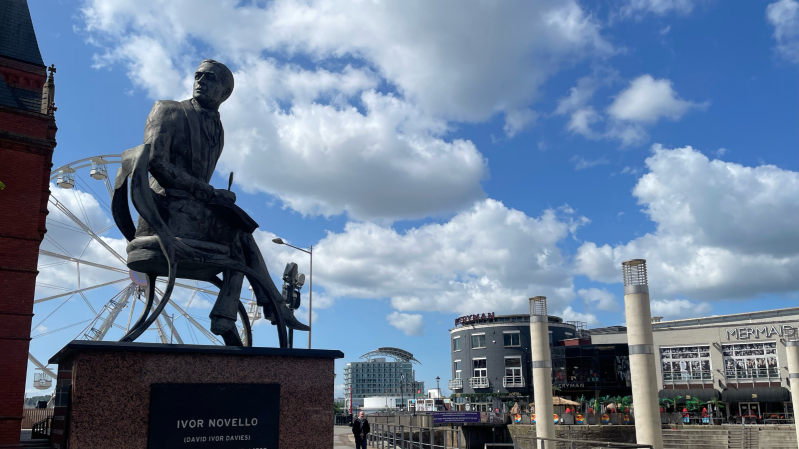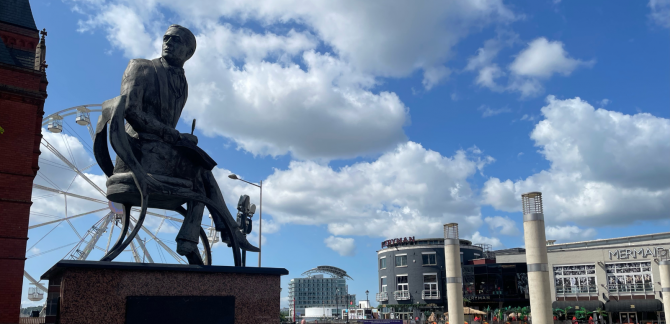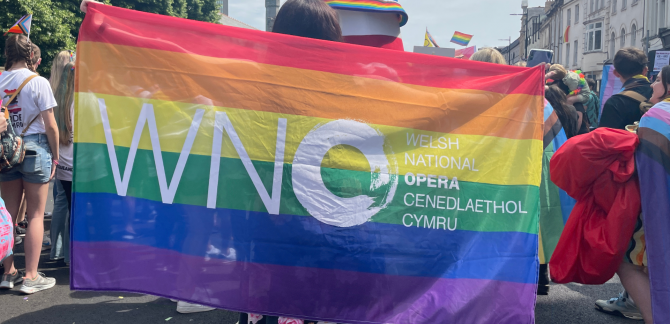It’s Pride Month, and we’re turning up the volume on the legends that made classical music louder, bolder and queerer. From concert halls to the opera house, LGBTQ+ composers have been shaping the sound of classical music for generations.
Some lived in secret, some lived out loud. But all of them gave us music that resonates. This month, we celebrate some of those composers.
Leonard Bernstein
Leonard Bernstein stood at the forefront of the American music scene of the 20th century. From the timeless tale of the musical West Side Story to the wild ride of the operetta Candide, Bernstein’s work was undoubtedly electric.
But Bernstein was more than a composer. He was a passionate activist, lending his voice to the civil rights movement, calling for nuclear disarmament and urging the Reagan administration to acknowledge the AIDS crisis.
He was openly bisexual in his personal circles, navigating a complex marriage to actress Felicia Montealegre while maintaining romantic relationships with men. His sexuality, although rarely publicised at the time, infused his music with themes of love, identity and longing, especially in deeply personal works such as Mass.

Julius Eastman
Julius Eastman was a groundbreaking avant-garde composer, vocalist and activist whose music challenged convention. A proudly gay black man working in the often-rigid world of 1970s and 80s classical music, Eastman intertwined themes of minimalism, jazz and protest in his work.
His compositions were intentionally provocative and designed to confront racism and homophobia directly. His titles sparked controversy; however, his overall message was clear: queer black voices belong in the world of classical music.
Composition such as Gay Guerilla, although important in their message, was not originally well received. However, with renewed interest in his work, Julius reminds us that freedom is always worth fighting for.
Dame Ethel Smyth
Ethel Smyth was undoubtedly a trailblazer. She was the first female composer to receive a damehood and was a fierce advocate for the women’s suffrage movement. She composed operas, choral works, and anthems that stirred hearts and challenged the status quo.
Smyth was boldly lesbian and had several passionate relationships with women, including an intense relationship with suffragette leader Emmeline Pankhurst. Her rousing theme, the March of Women became the rallying cry of the suffrage movement. She was more than a campaigner and a composer. She’s an icon that embodies the very spirit of Pride Month.
Ivor Novello
Ivor Novello remains one of Wales’s greatest national treasures. Frequent opera goers to our Cardiff Bay base might recognise him as the statue sitting proudly outside of Wales Millennium Centre. A composer, playwright, and performer, Novello rose to fame with his 1914 hit Keep the Home Fires Burning, a heartfelt anthem during the First World War.
Although he lived during a time of widespread prejudice, Novello’s homosexuality was an open secret. He shared a 35-year partnership with actor Robert ‘Bobbie’ Andrews. His legacy endures, not only through his music, but in the West End theatre that still bears his name.







